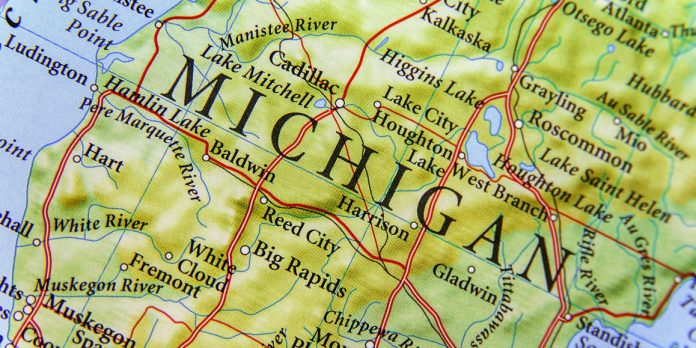Michigan was among the latest US states to experience its first month-on-month decline in sports betting revenue since launching online sports betting earlier this year, due to a slowing of the sports calendar in April.
But the seasonal slowdown didn’t stop the state from becoming the quickest in the US to $1bn in online wagering. This as online casinos continued to dwarf sports betting with another month of revenue that neared $100m, according to PlayMichigan.
Relying heavily on regular season baseball and NBA games to generate action, Michigan sportsbooks accepted $249.9 million in online handle in April, down 30.5% from $359.5m in March.
Combined with the state’s $24.2m retail handle, which was released last week, Michigan’s online and retail sportsbooks collected $274.2m in bets, 91.1% of which were made online. The combined handle was down 28.5% from $383.7m in bets in March.
The total handle will likely keep Michigan at No. 5 in the US, behind New Jersey, Nevada, Pennsylvania, and Illinois. But with $1.03bn in online wagers made from the launch of online sports betting on January 21 through April 30, Michigan is the quickest of any state to reach $1bn in online wagers.
“Sports betting gets the lion’s share of attention, but it will take years for Michigan’s sportsbooks to reach the kind of revenue that online casinos are already producing,” said Jessica Welman, analyst for PlayMichigan.com. “In addition, online casinos aren’t susceptible to the same seasonal ebbs and flows like sports betting. That said, $1bn in less than four months of online sports betting is no minor feat either.”
April’s gross operator revenue from online betting slipped to $20.4m, down 36.8% from $32.3m in March. Adjusted gross revenue fell to $10.9m from the record $19m generated in March. That revenue yielded just $312,824 in state taxes. Promotional credits continue to sap the state’s take, even as the promotional spend fell to $9.5m in April.
“Sportsbooks are in a generally healthy position heading into the typical summer slowdown, especially considering Michigan’s pro teams have not done much to spur interest,” said Matt Schoch, analyst for PlayMichigan.com.
He added: “Tax revenue is still a concern, and we will likely have to wait until football season to see significant growth in sports betting again. But with the Olympics this year and the NBA Finals later than usual, sportsbooks can look forward to a busier-than-normal summer. Ideally, that will positively affect tax revenue, too.”
FanDuel/MotorCity Casino topped online operators with a $74.2m online handle, down from $107.2m in March. April’s action produced $7m in gross sports betting receipts for FanDuel, down from $7.8m in March, resulting in a market-best $5.2m in taxable revenue, up from $5m.
DraftKings/Bay Mills Indian Community jumped to No. 2 with $61.5m in wagers, down from $76.5m in March. Gross gaming revenue dropped to $3.4m from $6m in March, leading to $1m in adjusted revenue, down from $3.7m. BetMGM/MGM Grand Detroit was third in betting volume with $54.9m, down from $92.6m in March. Gross receipts fell to $5.5m from $8. m, and taxable revenue dropped to $3.8m from $6.4m.
“FanDuel, BetMGM and DraftKings continue to flex their marketing advantages to separate themselves from the state’s other operators,” Schoch said. “As the trio entrench themselves at the top of the market, it will be increasingly difficult for any other operator to break through.”
Michigan’s online casinos and poker rooms continued to impress with $94.9m in April — down slightly from $95.1m in March. That total actually represents a small increase in revenue per day, however. Online casinos and poker rooms combined to win $3.16m per day for the 30 days of April, up from $3.07m per day in the 31 days of March.
The win yielded adjusted gross receipts of $88.9m, up from $88.7m in March, generating $17.8m in tax revenue for the state and $5.2m in local taxes.
April’s revenue should keep Michigan close to Pennsylvania and New Jersey, the nation’s two largest igaming markets in the US, though neither of those states has reported April data yet. The biggest difference is where the states are in maturity. New Jersey launched online casinos in 2013 and Pennsylvania launched in 2019.














